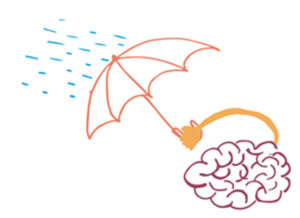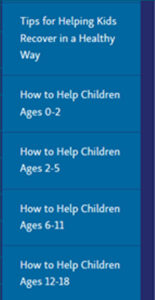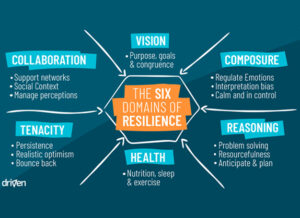Resilience & Trauma
Wednesday, 19 August 2020
Share this article:
By Sage Ball, Vice Principal Pastoral
RESILIENCE
Resilience is a word that is used a lot in education. The word resilience is used to mean how children, and adults, cope with difficult experiences. We are all, it has to be said, aware of how amazing and resilient children can be!
Children are remarkably resilient and as parents we support the development of their resilience. When children become more resilient they become more capable of coping with difficult circumstances.

STEPPING OUTSIDE OF RESILIENCE – TRAUMA
Children, including teenagers, do pick up on stressful events and strong emotions. Our children ‘step outside’ the level of resilience that they have and it is easy as a parent to sometimes misread their behaviour changes that can come from this act of stepping. Especially if we, ourselves, are stressed. Children can struggle to explain their concerns about complex events. This lack of understanding does not mean that they are not worried. This worry can show in our children’s behaviour. If you notice that your child is acting differently to normal it may be that events in Lebanon, or our responses as parents to these events, are too much for them.
SOME SIGNS (taking into account the possible loss of routine due to Covid-19)
Think about the following questions, based on your child’s age. If you answer ‘yes’ then please do take the time to look at one of the two websites below:
Children Under 5 (age appropriately):
• Is your child suddenly wetting the bed again?
• Is your child being overly clingy?
• Is your child not sleeping well, when they previously slept well?
• Has your child developed a loss of appetite?
Elementary School Children:
• Is your child acting out of character be being irritable or aggressive?
• Is your child being overly clingy?
• Is your child suddenly having a lot of nightmares?
• Has your child become withdrawn?
Teenagers
• Has your child’s sleeping and eating habits changed suddenly and significantly?
• Is your child being more agitated than normal?
• Is your child suddenly being much more confrontational?
• Has your child developed physical complaints?
There are more questions than those above that can be asked. If you are concerned about a change in behaviour of your child, then please look at website number 1. It has a lot of useful information that has been split into different age groups. Sometimes all that we need to do to help our children regain their resilience is to provide a bit of support in a different way.

Two Useful Websites
1) The Child Mind Institute’s website provides a range of useful tips and activities to help support your child’s resilience.
• E.g. Share information about what happened. It’s always best to learn the details of a traumatic event from a safe, trusted adult. Be brief and honest, and allow children to ask questions. Don’t presume kids are worrying about the same things as adults.
2) For more detailed information, please check the American Psychological Association website.





